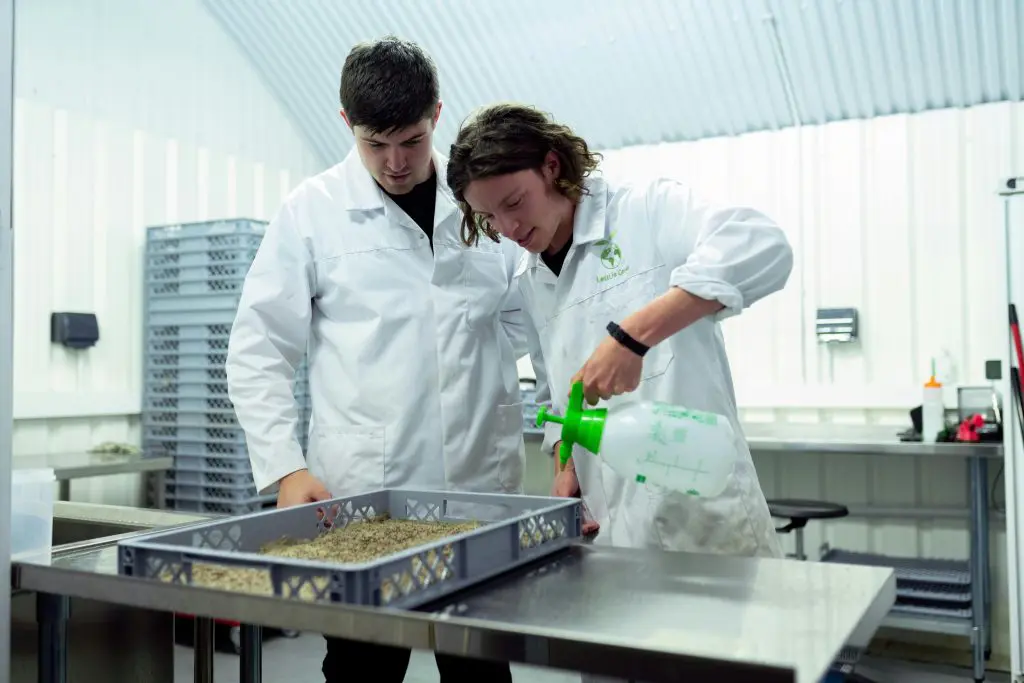
New Study Highlights Risks of Weakened Climate Commitments by High-Emitting Countries A major new international study led by the University of Galway has warned that a recently proposed approach to climate target setting, ‘temperature neutrality’ (also referred to as ‘no additional warming’), risks weakening global climate ambition while entrenching inequalities between rich and poor nations. […]
A major new international study led by the University of Galway has warned that a recently proposed approach to climate target setting, ‘temperature neutrality’ (also referred to as ‘no additional warming’), risks weakening global climate ambition while entrenching inequalities between rich and poor nations.
Published in the journal Environmental Research Letters, the study was conducted in collaboration with the University of Melbourne, University College Cork, and Climate Resource, and examined how this approach could allow high-methane-emitting countries such as Ireland and New Zealand to meet climate targets while continuing to emit disproportionately high levels of methane.
Unlike the scientifically established goal of net-zero greenhouse gas emissions, ‘temperature neutrality’ aims only to stabilise a country’s contribution to global warming, rather than reduce it to zero. This approach requires only modest methane reductions from countries already emitting large amounts, enabling them to continue contributing significantly to global warming while claiming compliance with climate goals.
Lead author Dr. Colm Duffy, Honorary Lecturer in Agri-Sustainability at University of Galway, warns that this method could have serious consequences:
“If every country adopted a temperature neutrality target, we’d seriously jeopardise the Paris Agreement’s goal of limiting warming to 1.5°C, or even 2°C.”
The researchers argue that ‘temperature neutrality’ effectively preserves the status quo for wealthy, livestock-exporting nations while limiting the ability of low-emitting, food-insecure countries to develop their agricultural sectors. These lower-income countries may be forced to curb their methane emissions even before expanding food systems necessary for nutrition and development.
The study found that Ireland’s per capita methane emissions would remain nearly six times the global average by 2050 under this policy, a result of grandfathering existing emissions levels.
“This approach doesn’t just weaken climate ambition,’ Dr. Duffy says. “It entrenches inequality. It protects the status quo for wealthy countries while placing an unfair burden on poorer, food-insecure countries, limiting their ability to grow their own food system.”
According to the study, agricultural exports from countries like Ireland are primarily directed to other wealthy, food-secure nations, rather than meeting nutritional needs in lower-income countries. As a result, the benefits of continued high emissions are not aligned with global development priorities.
Dr. Róisín Moriarty, Research Fellow at the Sustainability Institute at UCC, criticised the temperature neutrality framework:
“A ‘no additional warming’ approach to target setting amounts to backsliding on a country’s commitment to the Paris Agreement and is not a reflection of ‘highest possible ambition’.”
The temperature neutrality approach, the scientists argue, underestimates the level of emissions offsetting required in livestock-exporting countries and may delay investment in carbon reduction technologies and biodiversity-friendly farming practices.
Professor Hannah Daly, a sustainable energy expert at UCC, highlighted that methane is responsible for around 40% of global warming to date, and its short atmospheric lifetime makes it a key target for immediate cuts.
“For a country like Ireland, with outsized methane emissions, to base our long-term climate target on simply stabilising warming is inadequate to meet our global obligations and sets a dangerous precedent.”
Dr. David Styles, Associate Professor in Agri-Sustainability at University of Galway, added that Ireland’s agricultural sector has major potential to contribute to a climate-neutral and biodiverse economy, but that achieving this will require robust targets and significant change over time.
“Establishing a robust and internationally defendable climate target is vital to plan for a just transition, not just internationally, but for Ireland’s farmers. Temperature neutrality falls short.”
The research was supported by the Irish Department of Climate, Energy and the Environment under the FORESIGHT and CAPACITY climate modelling projects. Dr. Duffy, who is also a Research Fellow on FORESIGHT, was among the signatories of an open letter that criticised a similar policy in New Zealand.
The new study sends a strong signal that while climate policy frameworks must consider national contexts, they must also uphold global equity and environmental integrity. The ‘temperature neutrality’ approach, if widely adopted, risks undermining the Paris Agreement and entrenching historical emission advantages for high-polluting nations.
As the world approaches critical thresholds for climate action, scientists urge a return to net-zero targets backed by strong international accountability and a commitment to deep, rapid, and sustained emissions reductions.
At All-Ireland Sustainability, we’re committed to building a greener, fairer island, together. Stay informed on the latest environmental initiatives, community action, and policy developments shaping sustainability across Ireland, North and South.
👉 Sign up for our newsletter today and be the first to hear about upcoming events, expert insights, and ways to get involved.
Whether you’re a seasoned advocate or just starting your journey, new members are always welcome.
Subscribe now and be part of the All-Ireland Sustainability network.